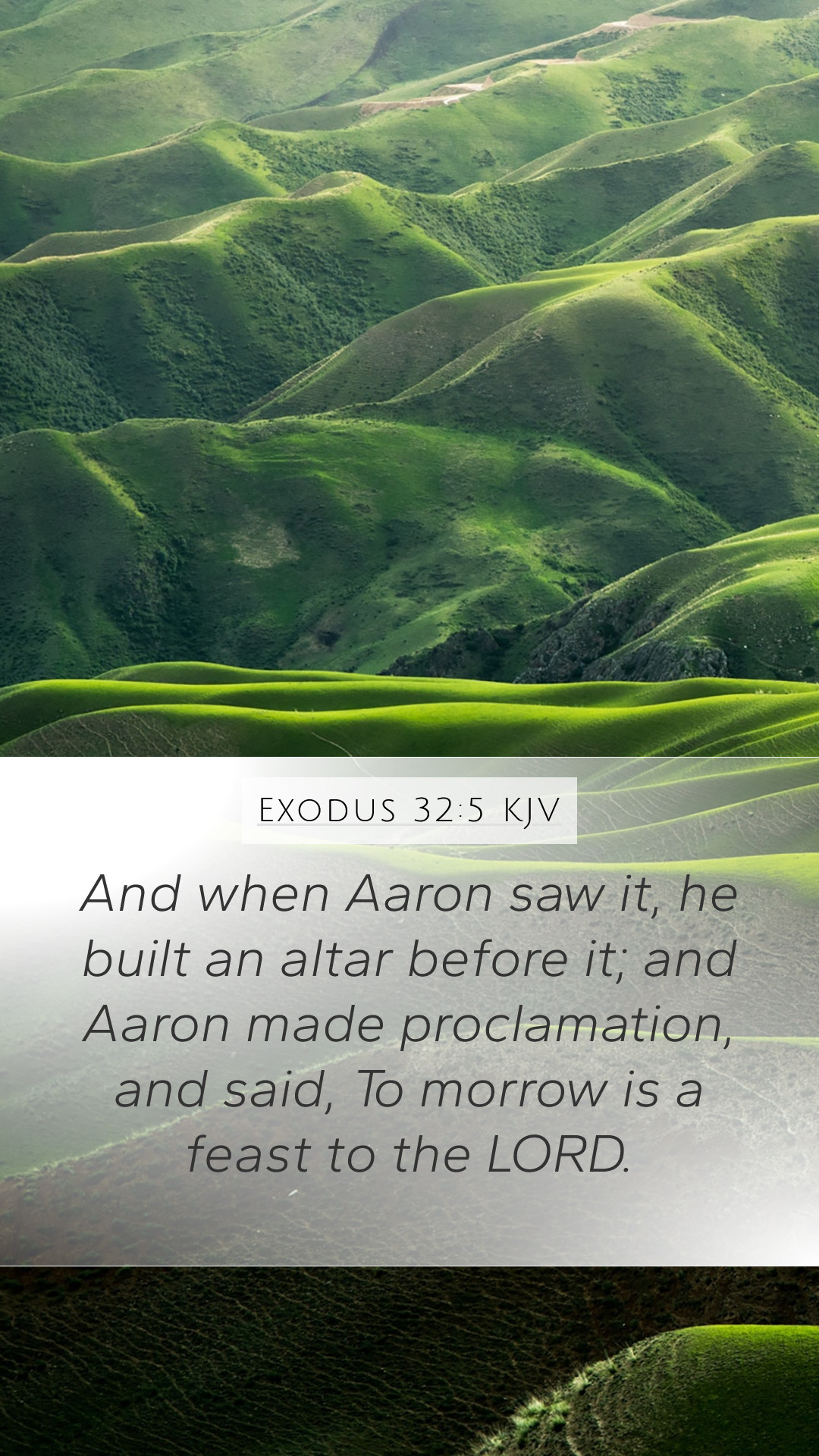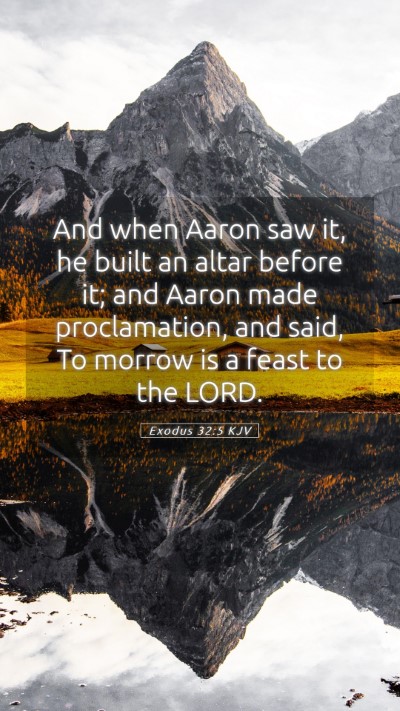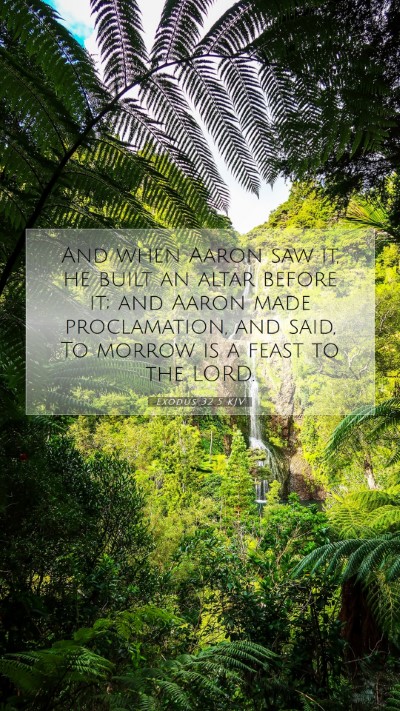Exodus 32:5 - Bible Verse Meaning and Interpretation
Exodus 32:5 states: "And when Aaron saw it, he built an altar before it; and Aaron made proclamation, and said, To-morrow is a feast to the Lord." This verse takes place during the critical moment when the people of Israel, in the absence of Moses, turn to idol worship by making a golden calf. Aaron, Moses' brother, yields to their pressure and facilitates this sinful act by proclaiming a feast.
Understanding Scripture: Context and Implications
To grasp the depth of Exodus 32:5, one must first acknowledge the historical context surrounding it. This passage comes at a time when the Israelites had just been liberated from slavery in Egypt, yet they lacked faith in God's promise and Moses' leadership.
- Contextual Background: The Israelites, fearing their leader’s prolonged absence on Mount Sinai, demand a physical representation of God, leading to Aaron’s tragic decision.
- Idolatry's Role: This moment reveals the propensity towards idolatry when faith falters—a theme prevalent throughout the Bible.
- Significance of Aaron's Actions: Aaron’s construction of the altar highlights the dangerous blend of worshiping God while conforming to pagan practices.
Bible Verse Commentary: Insights from Public Domain Commentaries
Commentaries by notable theologians such as Matthew Henry, Albert Barnes, and Adam Clarke provide rich insights into this verse:
-
Matthew Henry: He emphasizes the tragedy of fickle faith among the Israelites. Henry points out that Aaron’s actions were not merely misguided but a reflection of the people’s weak commitment to the covenant with God. This act of worshipping an idol directly contradicted the very essence of their relationship with God.
-
Albert Barnes: Barnes suggests that Aaron's leadership was compromised. Instead of guiding the people towards fidelity to Yahweh, he capitulates to their demands. This highlights how leadership can sometimes fail under pressure, leading to the collective downfall of the community.
-
Adam Clarke: Clarke focuses on the implications of Aaron's proclamation of a feast to the Lord, suggesting that it was an attempt to syncretize the worship of Yahweh with the idolatrous practices surrounding them. This mixing of worship styles serves as a warning against diluting pure worship with cultural influences.
Bible Study Insights: Applying Exodus 32:5 to Daily Life
Understanding Scripture also means applying its lessons to our lives today:
- Idolatry in Modern Times: Just as the Israelites struggled with idolatry, modern believers can inadvertently allow things such as material possessions, careers, or social status to take the place of God.
- Leadership Accountability: The verse calls us to reflect on the importance of strong leadership. Leaders in faith must remain steadfast in their commitment to God's word to prevent their followers from straying.
- Faith during Waiting: The Israelites' impatience during Moses’ absence serves as a reminder of the necessity of patience and perseverance in awaiting God's promises instead of turning to alternative routes.
Conclusion: The Lasting Impact of Exodus 32:5
Exodus 32:5 resonates through time as it addresses issues of faithfulness, leadership, and idolatry. Studying this verse, along with its reflections from historical commentary, enriches our Bible verse understanding and allows us to engage in an in-depth Bible verse analysis that transcends mere reading.
Related Scriptures for Further Study
- Exodus 20:4-5 - God’s command against idolatry.
- 1 Corinthians 10:7 - New Testament admonition against idolatry.
- Psalm 106:19-20 - A recount of Israel's folly regarding the golden calf.


